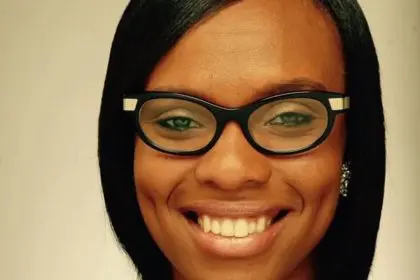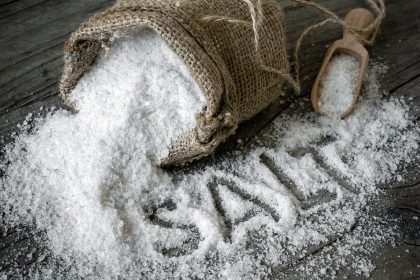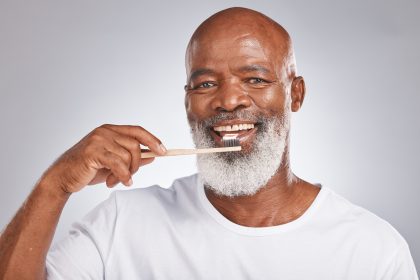Born in Lincolnville, South Carolina, Dr. Pernessa Seele has dedicated over 37 years to bridging the gap between faith and public health. As the founder and CEO of The Balm In Gilead, she has transformed how churches address health disparities in Black communities. Named one of Time Magazine’s Most Influential Persons in the World, Dr. Seele’s vision has grown from a simple idea at Harlem Hospital to an international organization that’s reshaping how faith communities approach health education and advocacy.
[Editor’s note: This is a truncated transcribe of a longer video interview. Please see the video for the extended version. Some errors may occur.]
You’ve built an institution that has lasted 37 years. What inspired you to create The Balm in Gilead for our community?
It was just a teeny-weeny little idea that God gave me in 1989 to mobilize the faith community of Harlem. I was working at the Harlem Hospital, and looking back 37 years, I was very naive. Had no idea what I was doing, but I could not understand why at that time everybody in the hospital who was in the bed was dying of HIV, and there were no pastors coming. There were no mommas and daddies coming. The funeral homes weren’t burying people.
The second day on this job, God gave me a little idea, because I hated this job, of a Harlem Week of Prayer for the Healing of AIDS. That little idea gave birth to The Balm in Gilead. Today, not only are we mobilizing faith communities around HIV, but also around Alzheimer’s, cardiovascular disease, peripheral artery disease, genetic kidney disease. When you look at African Americans, we have the high rates of everything. And even when we don’t have high rates, we die too soon because we don’t get to the doctor or when we go, we don’t get access to the right information.
Can you share your superpowers on being able to have a vision that is shared with God and building an institution that authentically serves our community?
There’s always someone who has a burning thing in them. That burning really is God saying, I want you to do this thing. I want you to be my ears and my hands and my feet. The key is that you have to get yourself out of the way. First of all, you have to be a believer that God is calling you to do this thing.
Don’t get sideswept though, because we got a million things of why we can’t do it. The time is not right. We don’t have no money. We too busy. And all of that are just delusional conflicts that get in God’s way of using you. When you say yes to that burning in you, you will be absolutely mystified on how everything that you need will come to you. But first you have to say yes to it.
How do you continue to educate and bring churches together through the Healthy Churches conference?
Every day I have to remind myself that you have to be called by the Lord to work with the church, especially the Black church. We want every church to have a health ministry. We want every church to be focused on health disparities in our communities. The pews and the pulpit are filled with sickness and disease. And it doesn’t have to be so.
The church is still that institution that anchors our community. Just like when we got our freedom, every church was a center of education. Every church has a youth ministry. The church anchored Morehouse, Clark, Howard, Clafflin—the HBCUs came out of the Black church. Today, we want that same kind of intentional focus on health that the church had to make sure Black people learned to read and write.
What specific health information are you trying to share through the conference?
At Healthy Churches Conference, we tell the truth. Sometimes we don’t go to the doctor because we are hopeful the Lord is going to heal us. You have to get clear that going to the doctor does not say you don’t believe in God because God is working through doctors. God is working through medicine.
For example, when we say dialysis, you go to any dialysis place and it’s filled with Black people. What we don’t know is that a high percentage of kidney disease is genetic. There is a genetic test that if the doctor would tell you about it, you might be able to prevent having to get to dialysis. That’s the kind of information we share.
This year, we have Dr. Joy DeGruy speaking about post-traumatic slave syndrome and its impact on our health. It’s hard for us to give up things we have been taught. But it’s also about the healthcare system, because oftentimes Black people are not given access, because they’re treating us the way they treated us back in the day too.
What do you want pastors and members to understand about this year’s conference?
This is the 11th annual Healthy Churches Conference, and The Balm in Gilead has been around for 37 years. So God must be doing something right through us. We’re asking you to join us as faith partners—bring at least 25 to 100 or more people from your congregation to this virtual conference. They’ll have access to this information for six months so they can get the information for themselves, their families, and the community.
We talk about the role of pastors—the good, the bad, and the ugly—because we have to address it all when it comes to our health. We’re looking at how to overcome these challenges to have a better life for ourselves and our children and our children’s children.












